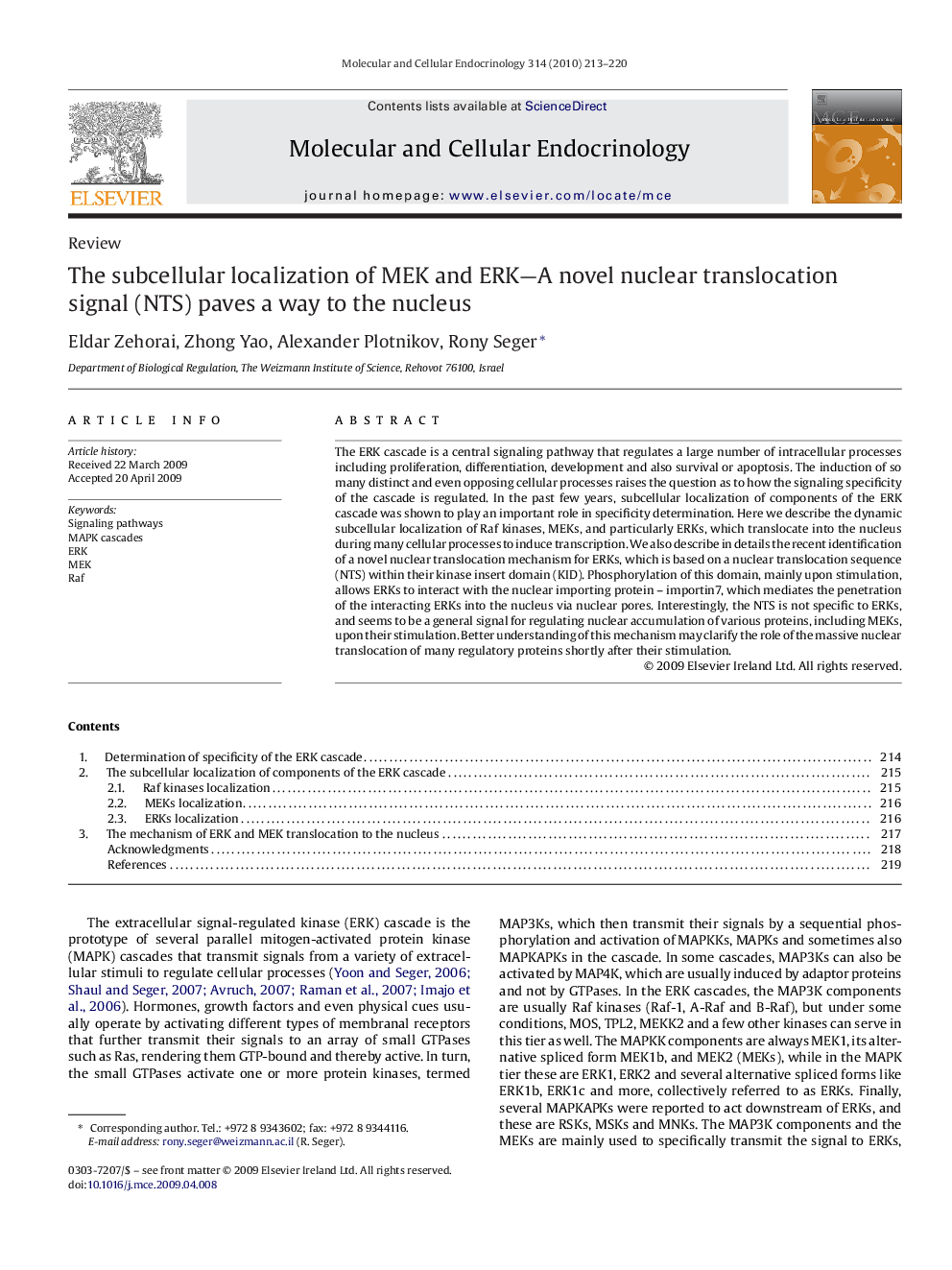| Article ID | Journal | Published Year | Pages | File Type |
|---|---|---|---|---|
| 2197112 | Molecular and Cellular Endocrinology | 2010 | 8 Pages |
The ERK cascade is a central signaling pathway that regulates a large number of intracellular processes including proliferation, differentiation, development and also survival or apoptosis. The induction of so many distinct and even opposing cellular processes raises the question as to how the signaling specificity of the cascade is regulated. In the past few years, subcellular localization of components of the ERK cascade was shown to play an important role in specificity determination. Here we describe the dynamic subcellular localization of Raf kinases, MEKs, and particularly ERKs, which translocate into the nucleus during many cellular processes to induce transcription. We also describe in details the recent identification of a novel nuclear translocation mechanism for ERKs, which is based on a nuclear translocation sequence (NTS) within their kinase insert domain (KID). Phosphorylation of this domain, mainly upon stimulation, allows ERKs to interact with the nuclear importing protein – importin7, which mediates the penetration of the interacting ERKs into the nucleus via nuclear pores. Interestingly, the NTS is not specific to ERKs, and seems to be a general signal for regulating nuclear accumulation of various proteins, including MEKs, upon their stimulation. Better understanding of this mechanism may clarify the role of the massive nuclear translocation of many regulatory proteins shortly after their stimulation.
